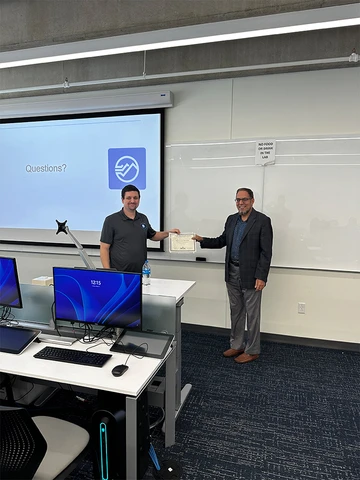Prepare for a Career in Cyber Defense
The Advanced Certificate in Cybersecurity at Fredonia is your gateway to one of the fastest-growing fields in technology. With demand for cybersecurity specialists expected to grow by 18%—and some specialties by as much as 36%—this fully online, affordable program prepares you for an in-demand career. Whether you're advancing in your current field or just starting your journey, Fredonia offers hands-on training, expert faculty, and cutting-edge resources to help you succeed.
What You’ll Gain
- Expert Knowledge: Learn to identify risks, design secure systems, and manage computer and network security across industries.
- Hands-On Experience: Access our virtual lab for system configuration, secure architecture design, and software exploit development—skills often taught at costly conferences.
- Career Readiness: Build credentials through real-world problem solving, industry-sponsored projects, and opportunities to earn networking and security certifications.
- Industry Connections: Join a program with alumni working at leading organizations like Google, IBM, and Microsoft or pursuing graduate studies at top universities like CalTech and Georgia Tech.
- Modern Resources: Work in our state-of-the-art labs in newly renovated Houghton Hall, equipped for virtual reality, robotics, networking, and more.














